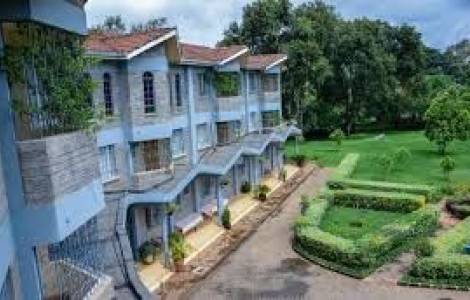
Nairobi (Agenzia Fides) - Religion must not be exploited to fuel conflicts which are instead determined by political, strategic and economic factors. This is the meaning of the message published at the conclusion of the consultative seminar "Christianity in dialogue with Islam and African Traditional Religions (Atr): challenges and opportunities" held in Nairobi from 9 to 10 April. Promoted by the Dicastery for Interreligious Dialogue, the event was attended by representatives of the Commissions for Interreligious Dialogue in Africa and Madagascar, from various countries including Morocco, Central African Republic, Nigeria, Senegal, Cameroon, Benin, Burkina Faso, Tanzania, Malawi, South Africa, Togo, Mozambique, Democratic Republic of Congo and Kenya.
"We are concerned over the increasing polarization, tensions, conflicts and religious radicalization in certain African countries, particularly in West, Central and East Africa, that can be attributed to various factors, including socio-economic and political ones. This situation worsens when some individuals and groups instrumentalize religion", is what is stated in the final document. "These elements weaken “the human family’s innate vocation to fraternity” (Fratelli Tutti, 26) and undermine conviviality among diverse social and religious groups. They also hinder the efforts of the Church in Africa and of other religious communities to promote constructive interreligious dialogue".
In order to face this challenge "the Church looks at the moral and religious values of African traditions with great respect. For us, interreligious dialogue is an effective means to eradicate ignorance regarding other religious traditions, promote mutual respect and preserve values that promote religious and cultural diversity and the dignity of every human being."
"Interreligious dialogue and the proclamation of the Gospel, though not on the same level and not mutually exclusive, are authentic elements of the Church’s evangelizing mission. In order to fulfil this mission, every Christian is called to participate in these two activities (cf. Dialogue and Mission, 77, 82; Ecclesia in Africa, 65-67)”. “We declare that the African continent can only achieve an integral and sustainable development if it can foster a culture of peace and fraternity founded on the principles of freedom, justice, democracy, respect, and solidarity. A culture that, through dialogue, diplomacy, and negotiation, respects human rights and dignity and rejects violence,” the statement continues. “In this regard, religious leaders have a great responsibility to foster harmony and educate their respective followers to live as brothers and sisters. To this end, the creation of an Episcopal Commission for Interreligious Dialogue should be encouraged in each African country in order to promote various expressions of interreligious dialogue”.
In conclusion, the participants commit themselves “to continue discussing the characteristics of the African cultural environment and African identity that enable constructive interreligious dialogue guided by the light of the Gospel and the Church’s magisterial teachings. Second, to emphasize the importance of interreligious dialogue in a pluralistic environment by promoting education that is open to synergies and to the new challenges of our time and that rejects the isolationist attitudes that generate intrareligious and interreligious tensions and conflicts. Third, to involve political decision-makers, religious leaders, NGOs, women, and young people in innovative interfaith strategies that promote dialogue at local, national, and continental levels. Fourth, to explore various opportunities that can enhance diverse forms of interreligious dialogue.” (L.M.) (Agenzia Fides, 12/4/2024)